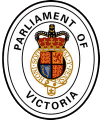Victorian Parliament - Voluntary Assisted Dying Bill passes lower house

Update 7th December 2017
At 4:10pm on Wednesday 22nd November, the Voluntary Assisted Dying Bill passed both Houses of the Victorian Parliament. The Victorian Governor has signed the Bill into an Act, so it is now law in Victoria, though not yet in effect. The Act will come into effect in June 2019, given Victorian residents facing intolerable suffering from an incurable illness, and who meet a number of hurdles, to lawfully request and obtain a peaceful death assisted by their doctor.
Update 20th October 2017
Victorians are a step closer to having the choice of assisted dying in the face of a terminal illness. After a marathon all-nighter sitting, the Legislative Assembly (lower house) this morning passed the Voluntary Assisted Dying Bill 2017. The Bill will now be sent to the Legislative Council (upper house).
The vote was won convincingly at 47:37, despite heroic efforts of opponents to create FUD (fear, uncertainty and doubt) through extensive misinformation, and filibustering the Bill's progress by putting up amendements to numerous clauses.
The Legislative Council is expected to debate the Bill next month.
Update 21st September 2017
In great news for Victorians, yesterday (20th September 2017), the Government tabled its Voluntary Assisted Dying Bill into the lower house of the legislature. The Bill is comprehensive, offering Victorians a further end-of-life choice, with numerous safeguards, and the stiffest pentalties worldwide for breaking the rules.
Parliamentary debate on the Bill is likely to commence mid October, so now is the time to contact your own members of the Victorian parliament and let them know you support the Bill. If you don't know which electorate you live in or who your members are, or don't have their contact details, then:
- Visit the Victorian Electoral Commission website and enter your home address, at the top of the page, to find out. It will show you your upper and lower house electorates. Make a note of the lower house electorate (District, in purple).
- Then go to the Victorian Parliament website and enter your lower house electorate name in the Electorate field (the last one) and click Search, to find your lower house member. Note down your Member's contact details.
- Then, also click the [Electorate] button on the Member's page (on the right) and then click the Region link on the target page. This also gives you the names and details of your five upper house parliamentarians.
- Take down their contact details and let them all know you're asking them to support the Bill.
The Standing Committee on Legal and Social Issues (Legislation and References) of the Parliament of Victoria, Australia, has recommended that the Government introduce leglislation to allow assisted dying in restricted circumstances.
Update 9th June 2016
In excellent news for Victorians, the LSIC has recommended that the Government legislate to allow assisted dying in restricted circumstances.
"Recommendation 49: The Government should introduce legislation to allow adults with decision making capacity, suffering from a serious and incurable condition who are at the end of life to be provided assistance to die in certain circumstances."
The recommendations include:
- Eligibility: A mentally competent adult experiencing intolerable and unrelievable suffering, with weeks or months to live. Must be ordinarily resident in Victoria and an Australian citizen or permanent resident.
- A process by which requests may be made (and rescinded).
- Checks and tests to ensure that relevant critieria have been met.
- Establishment of an authority to receive reports of assisted dying and present reports to Parliament.
- That conscientious objection (to not participate) is protected.
- That in the case that a patient cannot self-administer lethal medication, a doctor may do so at the patient's request.
You can read the full report here.
The recommendation has yet to translate into a Bill and a majority vote of both Houses of the Victorian Parliament. Some parliamentarians are intractably opposed to this reform and it's important that policitians hear from you to know that you want them to support the reform.
Sign the petition to go to all Victorian parliamentarians now, and spread the word!
Submissions were invited from interested individuals and organisations into end-of-life decision-making in Victoria, including:
- current practices including palliative care;
- whether current legislation satisfactorily encompasses contemporary community standards, aspirations and views;
- a review of legislation and practices in other jurisdictions, both within Australia and overseas; and
- what types of legislative change may be required.
Submissions to the inquiry, which have not been requested to remain confidential, are published on the Parliamentary website here.
Despite the Terms of Reference for the inquiry (below) do not mention assisted dying, almost all submissions to the inquiry have been made either to support or oppose the legalisation of voluntary euthanasia or physician-assisted dying. Clearly, the community is strongly engaged with the issue.
More information is available on the Victorian Parliament Inquiry's website.
Terms of Reference

STANDING COMMITTEE ON LEGAL AND
SOCIAL ISSUES
(Legislation and References)
Terms of Reference
58th Parliament
Inquiry into End of Life Choices
On 7 May 2015 the Legislative Council agreed to the following motion:
That pursuant to Sessional Order 6 this House requires the Legal and Social Issues Committee to inquire into, consider and report, no later than 31 May 2016, on the need for laws in Victoria to allow citizens to make informed decisions regarding their own end of life choices and, in particular, the Committee should —
- assess the practices currently being utilised within the medical community to assist a person to exercise their preferences for the way they want to manage their end of life, including the role of palliative care;
- review the current framework of legislation, proposed legislation and other relevant reports and materials in other Australian states and territories and overseas jurisdictions; and
- consider what type of legislative change may be required, including an examination of any federal laws that may impact such legislation.
